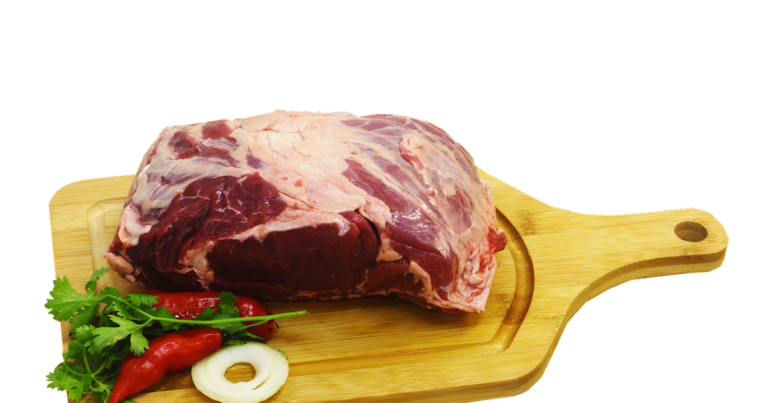From steaks to hearty stews, beef has been a culinary delight for centuries, its intense flavor, versatility and nutritional value making it a staple in kitchens around the world.
However, the debate over the health impact of beef continues to simmer.
In this comprehensive guide, Nutri4me sinks our teeth into the juicy details of beef nutrition, exploring its value, health benefits, potential drawbacks, smart selection and storage tips, cooking techniques and more.
Get ready to uncover the savory secrets of beef and discover how to make it a deliciously nutritious part of your diet!
Beef Nutritional Value: A powerhouse of essential nutrients
In terms of nutrition, beef is very strong. Let’s take a closer look at the key nutrients found in beef per 100 grams:
- Protein Powerhouse: Beef is a remarkable source of high-quality protein, providing about 26 grams per 100 grams. This protein is essential for building and repairing tissue, supporting immune function, and maintaining healthy skin and hair.
- Iron: Beef is rich in iron, with a 100 gram serving providing around 20% of the recommended daily intake. Iron plays a vital role in oxygen transport, energy production and optimal cognitive function.
- Zinc: Another essential mineral found in abundance in beef is zinc. With approximately 31% of the recommended daily intake per 100 grams, zinc supports immune health, promotes wound healing and aids in DNA synthesis.
- B vitamins: Beef is a fantastic source of many B vitamins, including vitamin B12 and vitamin B6. Vitamin B12 is vital for neurological function, DNA synthesis and red blood cell production. Vitamin B6 supports brain development, neurotransmitter synthesis and metabolism.
Beef Health Benefits: Nourishing and Wellbeing in Your Body
By incorporating beef into your diet, you can enjoy a number of health benefits:
- Muscle building and repair: Thanks to its high protein content, beef provides the necessary amino acids for muscle growth, repair and maintenance. It is a top choice for athletes and fitness enthusiasts.
- Blood health: The iron found in beef plays a key role in preventing iron deficiency anemia and ensuring optimal oxygen transport throughout your body.
- Immune Support: Zinc, which is abundant in beef, strengthens your immune system, helping to ward off disease and promoting overall well-being.
- Brain function: The combination of vitamin B12 and B6 in beef contributes to healthy neurological function, improved cognitive abilities and reduced risk of age-related cognitive decline.
- Heart health: Despite concerns about saturated fat, lean cuts of beef can still be part of a heart-healthy diet. Moderation and proper portion control are key.
Pros and Cons of Eating Beef: Balancing the Scales
It is necessary to weigh the pros and cons of eating beef:
Advantages: Beef is an excellent source of essential nutrients, especially protein, iron, zinc and B vitamins. Including it in a balanced diet can support muscle growth, blood health, immune function and cognitive well-being.
Disadvantages: Some cuts of beef are higher in saturated fat and cholesterol, which can contribute to heart disease when eaten in excess. Opting for lean cuts and moderate portions can alleviate these concerns. In addition, the environmental impact of beef production should be considered.
Beef Selection and Storage: Choosing Wisely for Maximum Quality
To ensure the best beef experience, keep these tips in mind:
– Impossible cuts: Choose lean cuts such as sirloin, sirloin or eye of round, which have less fat and cholesterol compared to fattier cuts.
– Quality check: Look for beef that has a bright, red color and is free of discoloration or off-odors. Check the expiry date and buy from reliable sources.
– Proper storage: Refrigerate beef at or below 40°F (4°C) and eat within a few days. For longer storage, consider freezing the beef in an airtight container, ideally within six months for optimal quality.
Cooking beef: releasing flavors and tenderness
Master the art of cooking beef with these cooking techniques:
Preparation: Allow beef to come to room temperature before grilling for even cooking and tender results. Season it with salt and pepper or the spices you prefer.
Cooking methods: Experiment with grilling, baking, braising or frying to bring out different flavors and textures. Use a meat thermometer to achieve desired doneness.
Relaxation: After cooking, let the beef rest for a few minutes to redistribute the juices, resulting in a more tender and flavorful dish.
Beef is a culinary gem that offers a myriad of nutritional benefits when enjoyed in moderation, by understanding its nutritional profile, choosing lean cuts and using proper cooking techniques, you can enjoy the deliciousness of beef while supporting your overall health. Remember, balance is key.
So enjoy the pleasure of enjoying a perfectly cooked beef dish and enjoy the wholesome goodness it brings to your table.
